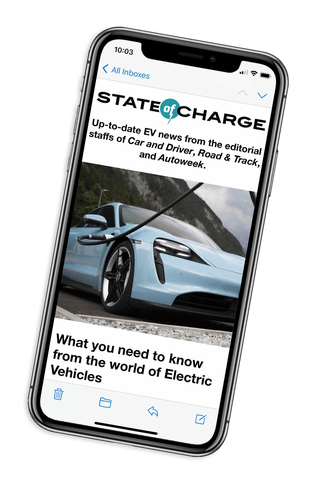- Washington state bill that seeks to mandate all new light-duty vehicles sold or registered in the state to be electric passes both houses.
- Bill and eventual law hinges on implementation of road usage tax based on per-mile travel, and the coverage of 75% of vehicles in that scheme.
- The measure is still more progressive than California's executive action that sets 2035 as the target year for EV-only sales.
The Washington state legislature has passed the Clean Cars 2030 bill, which will require that by 2030 all new light-duty vehicles sold or registered in the state be electric, with the exception of emergency vehicles. If signed into law by Governor Jay Inslee, the bill would become the most pro-EV measure adopted by any state in the country, including California's executive action that envisions a similar phase-out by 2035. Among the differences, of course, is that the Washington state bill would carry the force of law, whereas California's executive action by Governor Gavin Newsom is a far weaker measure, and really just directs the California Air Resources Board (CARB) to adopt agency rulemaking by that timeframe.
The Washington state bill was passed with a vote of 54-43 in the state House and 25-23 in the state Senate, and now awaits the governor's signature.
The measure itself is not as automatic a ban as it might seem, however.
For one thing, it is contingent upon 75% of the vehicles in the state being subject to a road usage charge—a separate event which has yet to take place. This measure would be an alternative to a gasoline tax, effectively charging drivers per mile traveled rather than at the gas pump, and must be enacted through separate pieces of legislation. Another limiting factor is that the bill applies only to light-duty vehicles, so it is by no means an all-inclusive measure.
"Once a road usage charge, or equivalent fee or tax based on vehicle miles traveled, is in effect in the state of Washington with at least 75 percent of the registered passenger and light-duty vehicles in the state participating, then a goal is established for the state that all publicly owned and privately owned passenger and light-duty vehicles of model year 2030 or later that are sold, purchased, or registered in Washington state be electric vehicles," the bill states in part.
Passage of the bill has been supported by Coltura, an organization that has been working with allies to speed up a transition to a zero-emissions automotive landscape.
"With the passage of Clean Cars 2030, the end of the era of gasoline-powered cars is in sight," Matthew Metz, co-executive director of Coltura said in a statement. "Clean Cars 2030 sets Washington on a nation-leading path consistent with climate science and an auto industry trend toward a fully electric automotive future."
Overall, Washington state legislators' efforts represent the most progressive (or aggressive, depending on your viewpoint) measures anywhere in the country to bring about a transition to vehicles powered by electric motors, whether they are battery-electric or hydrogen fuel-cell vehicles, as both are contemplated in the bill. If implemented, the law will effectively prevent registration of non-conforming vehicles bought out of state, which is meant to close that obvious loophole, tying the enforcement of the statute to registrations as well as sales.
The major trigger remains the actual road usage tax scheme, a measure intended to equalize the tax burden across gas, diesel, and electric vehicles, as otherwise EVs would simply not pay their share for road upkeep in the state.
"In 2012, the Legislature directed the Transportation Commission, in close cooperation with WSDOT and with guidance from a multi-stakeholder steering committee, to conduct an assessment of Road Usage Charging and determine if it is feasible," the Washington State Transportation Commission notes on its website. "Work has continued since 2012, and it has been determined that Road Usage Charging is feasible and that it will out-produce the gas tax in terms of revenue, as cars become more fuel efficient. A Road Usage Charge (RUC) is a per-mile charge drivers would pay for the use of the roads, as opposed to paying by the gallon of gas. If implemented, it would replace the gas tax statewide."
The measure itself is currently in a pilot project stage, even after eight years of work.
This particular legislative mechanism is perhaps more forward-looking that the phase-out of gas and diesel-engined light-vehicle sales, as it attempts to set out a way to collect revenue for an era further in the future than 2030. But it poses its own legislative challenges in the coming years and must be enacted separately.
Should other states adopt similar goals for 2030? Let us know in the comments below.
This content is created and maintained by a third party, and imported onto this page to help users provide their email addresses. You may be able to find more information about this and similar content at piano.io
"gas" - Google News
April 17, 2021 at 01:36AM
https://ift.tt/32pnW6F
Washington Races Ahead of California to Ban Gas Cars - Autoweek
"gas" - Google News
https://ift.tt/2LxAFvS
https://ift.tt/3fcD5NP
Bagikan Berita Ini


















0 Response to "Washington Races Ahead of California to Ban Gas Cars - Autoweek"
Post a Comment